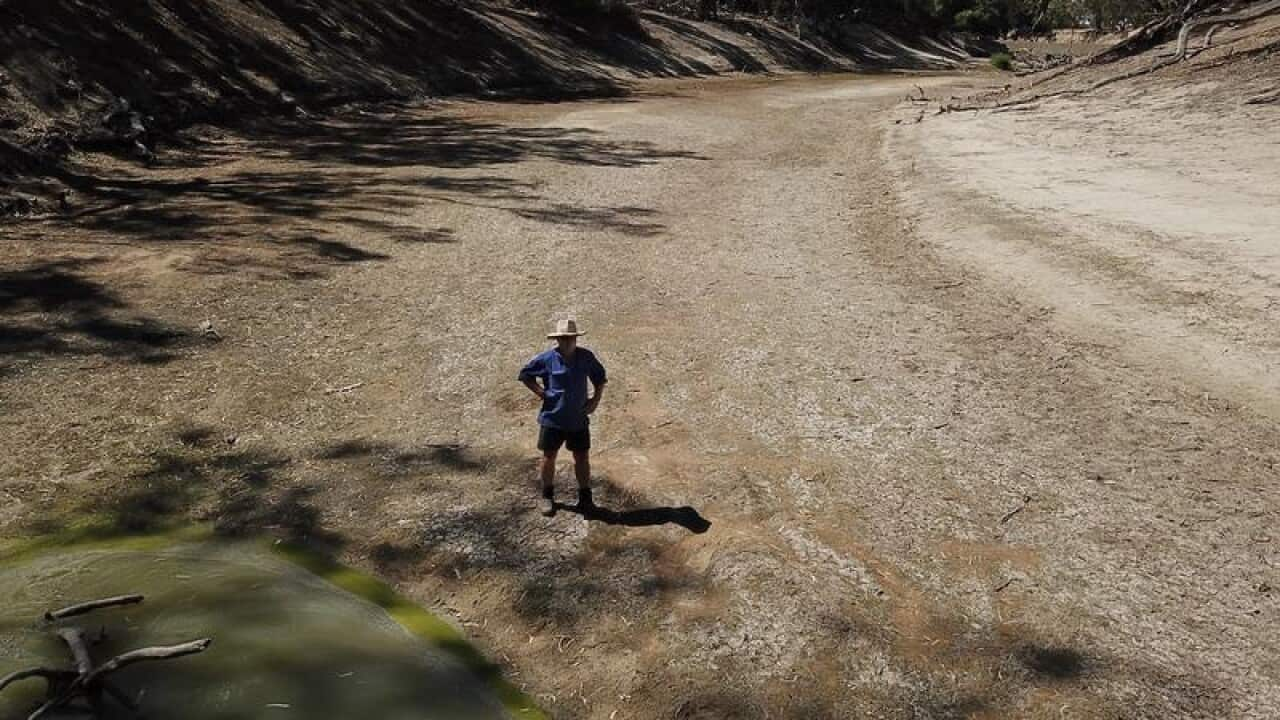When the Darling River runs dry Wayne Smith's stock runs wild. And that's a big problem for an organic sheep farmer.
The river itself forms the boundary for much of Mr Smith's vast property - but only when it's flowing.
A dry riverbed means serious headaches when it comes to organic certification.
"I've suddenly got uncertified sheep among my stock," the fifth-generation farmer told AAP on his property south of Menindee.
"As soon as there's no water, there's nothing to stop other stock walking through, and my stock walking to the other side."
Mr Smith suspended his organic certification in 2018 for what he thought would be a 12-month hiatus. But now, a dry and possibly toxic river, means it will likely be much longer.
A blue-green algae bloom which contributed to a series of mass fish deaths this summer at Menindee means if rain does come it could push the toxins downstream to Mr Smith.
"I don't want to be on the front page news as an organic sheep owner with sheep that drink toxic water," he said.
Much of NSW is doing it tough under extreme drought conditions.
But the decision to drain the Menindee Lakes in 2017 has exacerbated the problem for Mr Smith and his neighbours.
Mr Smith says the Murray-Darling basin has been managed well enough for decades but something has gone very wrong in recent years.
"The rules seemed to have changed," he said.
"Is it climate change, or is it floodplain harvesting or illegal extraction?"
The softly-spoken farmer questions the actions of big irrigators in the northern basin - especially those who capture floodplain water before it reaches the rivers.
"It's not illegal but it's immoral," he said.
Menindee is left high and dry, he argues, with northern irrigators keeping water and what's left allocated to South Australia.
"They seem to be using Menindee as the whipping boy for the Darling to get the water for South Australia," Mr Smith said.
Australian National University Professor Jamie Pittock says the Menindee Lakes have been drained before without resultant mass fish kills.
The NSW and federal governments need to step up and put in place "competent" water plans, the Wentworth Group of Concerned Scientists member told AAP.
The plans should account for all the water that's being taken - including from the floodplains.
"It's extraordinary you can have this legal fiction that water moving across a floodplain isn't a river and is a free for all for all to take," he said.
The Wentworth Group recently released a report into the Murray-Darling Basin Plan which suggested environmental flow targets haven't been monitored.
The report warned that without the return of environmental flows, blue-green algae blooms will continue to strain the rivers and impact pastoral industries.
Share

